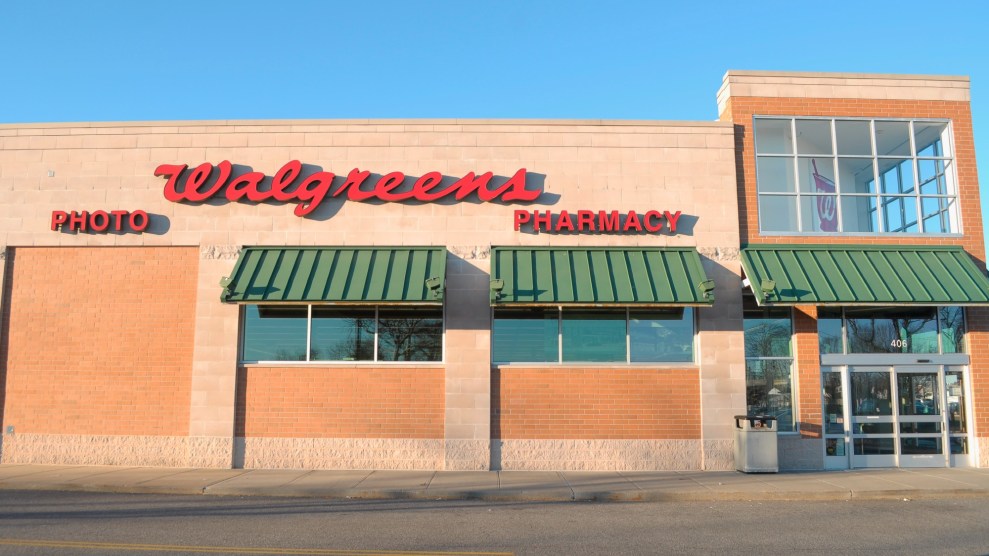
Jimin Kim/Zuma
On Friday, Walgreens and CVS announced they would begin selling the abortion pill mifepristone in their pharmacies in select states, part of a plan to eventually expand access to about half of US states where abortion is still legal. The announcement is notable ahead of arguments in a Supreme Court case that could further restrict access to the abortion pill, making pharmacy access to it especially critical for women—and potentially profitable for the pill’s backers.
Part of the case, which is scheduled for argument later this month, is a challenge by abortion opponents to the Food and Drug Administration’s 24-year-old authorization of mifepristone. Last year, I wrote about the private equity investors who helped to secure that authorization, bringing the abortion pill to market in the United States and creating the secretive web of financial entities that would become Danco Labs—today one of only two US retailers of mifepristone. (Until 2019, Danco was the country’s only retailer of the medication.) In the years since, they’ve earned tens of millions on their investment. As the story explained:
Their windfall has come through a byzantine corporate structure set up in the 1990s by a private equity fund, now called MedApproach Holdings, to allow investors to pour money into Danco Labs—until 2019 the only US retailer of mifepristone—without disclosing their identities. As states have imposed ever-stricter limits on abortion access, their investments have generated hefty returns.
On the heels of the Supreme Court’s ruling in Dobbs v. Jackson Women’s Health Organization last June, undoing the federal right to abortion—and the FDA’s announcement, in January, that retail pharmacies can now sell abortion pills—these investors are likely to earn even more, as medication abortion becomes the only option for millions of women living in the 26 states where abortion is now illegal or severely restricted. The potential is so promising that two of the primary investors have engaged in a bitter court battle to take control of the investment, and Danco itself.
The story had a dizzying plot that involved shell companies on the Cayman Islands, a priest, a disbarred lawyer, and a couple of racehorses. And there was plenty that remained uncovered—Danco is famously secretive. What I was able to report emerged only because several investors decided to sue each other for greater control of the company, putting their names and some of the company’s financials into the public record. That reporting revealed that the average return on investment for Danco’s private equity investors was, before the Dobbs decision, about 452 percent. One of the main investors had earned in the ballpark of $20 to $25 million.
Depending on the contours of the high court’s final decision this spring, Danco’s investors could lose money—or they could earn an impressive return. (Danco is one of the parties to the lawsuit.) The Supreme Court could go as far as to throw out the FDA’s authorization of the abortion pill—which is used in more than half of US abortions—closing down Danco’s ability to sell its only product. But the court could also limit how mifepristone is dispensed, prohibiting the ability to mail it but making pharmacies one of the few places able to give it to patients. (Previously the drug could only be dispensed directly from clinics or via mail.) That decision could make Danco’s investors untold additional money.


















